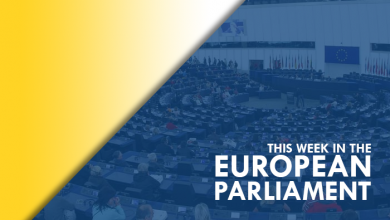Europe’s social heart is beating right before our eyes

The heterogeneous eurosceptic bloc pumps countless falsehoods on the EU to further its political agenda. Many conceive the Union as an elitist project whose only outcome has been the enrichment of a few important men operating in the financial sector: invisible, in the shadows, they exploit the European nations for their own business. While this conception is certainly product of ignorance and fear – often instilled by the media – the EU is responsible for its inability to communicate to the European citizens, to explain how the Union came to be and how the continent benefited from its foundation, starting from the 60 years of peace and effective prosperity.
The cheap and simplistic slogans shouted by the eurosceptics don’t reflect reality, but it’s a matter of facts that many feel detached from the Union, and sometimes may have good reasons: the austerity policies – which could have been avoided or carried out in a different way – helped shaping the view of a European Union which only cares about balanced budgets and fiscal diligence. Especially with regard to the Greek situation, the Troika chose to enact policies which damaged the needy far more than it did the wealthy.
 As previously outlined in detail on this website, the EU originated as an economic community whose main aim was to exert control over Germany’s stocks of coal and steel: an understandable move after the destruction and misery widespread on European soil after World War II.
As previously outlined in detail on this website, the EU originated as an economic community whose main aim was to exert control over Germany’s stocks of coal and steel: an understandable move after the destruction and misery widespread on European soil after World War II.
Today, the EU is way more than an economic community. The Union’s institutional system and “aquis communitaire” are way more complex and articulated, as its competences range from regional development to fishing and social policies.
In his State of the Union in September 2015, the EU Commission President Jean-Claude Juncker recognized the Union’s bad shape and the people’s distrust towards its supranational institutions; he called for a “social triple A rating” (beside the financial one), thus announcing the introduction of the European Pillar of Social Rights, to be first applied in the Eurozone and with the possibility for the other member states to join later. What is this pillar about?
In the Commission’s words, It will “direct the policies in a series of essential sectors for the proper functioning and equity of the job market and the social protection systems of the member states […] it will guide the reform process at the national level”.
It is divided into three categories:
1) Equal opportunities and access to le labour market
2) Fair working conditions
3) Adequate and sustainable social protection
What is really surprising and interesting is not the Commission’s decision to focus on social problems – it was necessary in the wake of the last crisis after all – but the European Parliament’s response, which has produced a pretty radical resolution approved
at the end of January.
The Parliament calls for a strong defense of the European Social Model embedded in a Social Market Economy, which in the past decades succeeded in guaranteeing the wellbeing of millions of European citizens through strong welfare states.
The resolution recognizes that the forms of on-demand and casual work, which are rapidly emerging throughout the continent, are a threat to the economic security of citizens. It calls for member states to respond with adequate measures of social protection and guaranteed rights. To fight social exclusion and poverty – mainly caused by the high levels of unemployement – the Parliament suggests the adoption of national minimum wages and a minimum income, after consulting the unions. Mentioning the most progressive documents ever produced – such as the Charter of Fundamental Rights of the European Union and several UN conventions – the resolution stresses the importance of a basic income for children, older people and people who are “unable to to earn sufficient income, in particular in cases of sickness, unemployment, maternity and disability”. More involvement of workers in the decision-making process within enterprises is suggested and the latter’s social responsibility is highlighted, as it is the discrimination to which are subject many women in the workplace – through lower wages on average – which results in more dependence on social services.
The resolution also considers the economic and social convergence of the Eurozone member states of great importance, especially on social policy.
Here is an extract from the Explanatory Statement of the Committee on Employment and Social Affairs which initially drafted the Resolution:

“To meet this challenge and respond to citizens’ expectations, it is vital to recognise and appreciate (again) that the state has an indispensable role to play in shaping markets and managing social risks. […] The EU must once again become a supportive force in this respect, strengthening its Member States and helping them to promote the European Social Model in a global context.
[…] The European Social Model has, of course, many national variations and each country has its specific arrangements, in line with historical developments and the principle of subsidiarity. However, in the face of globalisation and technological change, EU Member States are highly interdependent (also given the bond of a common currency) and they can only deliver broadly-shared prosperity to their citizens by working together. Without a common European framework, Member States are bound to be trapped in a destructive competition based on a race-to-the-bottom in social standards. The European Social Model is therefore a shared project, whose central objective is upward social convergence.”
It should be remembered that the EP resolutions are not binding, but have a strong political value because they formally express the will of the European citizens.
Secondly, according to EU law, social policy is a shared competence between the member states and the Union, and the former have most of the powers on this matter.
On April 26, the Commission will publish the first concrete proposals on the European Pillar of Social Rights. We hope that the member states and the Commission itself will follow the instructions of the European Parliament, by focusing more on the needs of the weakest members of our society.
You can see here how the political groups voted on the resolution.
Here you can read the full text.





